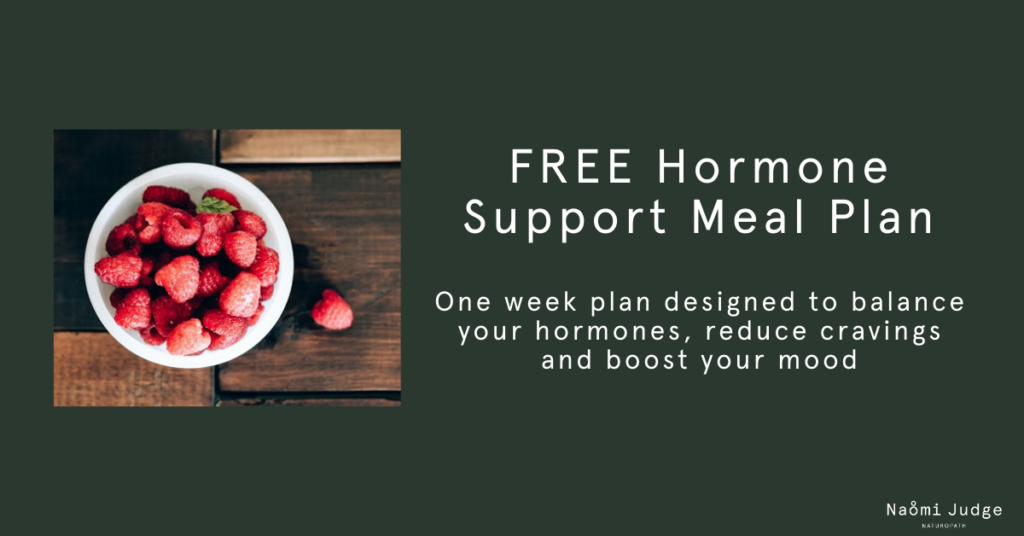Are you looking to boost low progesterone naturally? Many women suffer from the symptoms of low progesterone. But the good news is that you can support the production of progesterone through a variety of nutrition, lifestyle and supplement options.
Progesterone is a female hormone that is produced in the adrenal glands and in the corpus luteum that develops when you ovulate. If you fall pregnant, the placenta takes over production once it has been formed. But if you don’t fall pregnant, the corpus luteum dies off, progesterone drops, and your period starts.
Low progesterone is a common health concern for women. Unfortunately, it can lead to dozens of symptoms including:
- Constipation
- Bloating
- Short or long cycles (luteal phase defect)
- Heavy, painful periods
- Water retention
- Breast lumps
- Hair loss
- Acne along the jawline
- Depression
- Anxiety
- Insomnia
- Self-harm
- Infertility and miscarriage
But the good news is that a lot of these symptoms can disappear when we boost low progesterone up.
What can lower progesterone?
You don’t just wake up with low progesterone. So what could be affecting your levels? It can be a combination of factors including:
- Progestins (artificial progesterones) from the Implanon, birth control ring or contraceptive pill
- Toxins such as BPA, PCBs and heavy metals
- Higher oestrogen – whether due to oestrogen dominance or use of Hormone Replacement Therapy
- Nutrient deficiencies
- Chronic or severe stress
How can I boost low progesterone naturally?
For us to understand how to boost low progesterone, it’s important to understand how it’s produced.
Creating progesterone is a 2-step process. During step 1, cholesterol is converted to pregnenolone in the mitochondria. From there, pregnenolone is converted into progesterone. So for optimal progesterone, we need both steps to be taking place.
Pregnenolone support
There are a few vital nutrients we need for the first step. They include:
- Iron
- Ascorbic acid
- NADH – this comes from niacin (vitamin B3)
If you are deficient in any of these nutrients, supplementing can boost your production.
Progesterone support
There are also nutrients and herbs that can support the conversion into progesterone.
Vitex or chaste tree is one herb to consider. It raises FSH, LH and progesterone, which makes it a great option for those with issues such as:
- Anovulation
- Infertility
- Luteal phase defects
- Oestrogen dominance
- PMDD
However, it’s important to know not everyone should take vitex – learn more about it here.
Ubiquinol is the active form of coenzyme Q10. It supports FSH and the production of progesterone. This is specifically beneficial for those with low FSH, so I recommend testing to know what your hormones are doing. For example, if you are going through menopause, your FSH will likely be high, so it’s best to focus on adrenal support instead.
Thyroid support
The active thyroid hormone T3 also plays a role in progesterone. This can become a vicious cycle, as progesterone helps to promote the production of thyroid hormones. So we want to make sure you have sufficient T3 to support progesterone.
Steps you can take for this include:
- Discussing T3 or desiccated thyroid extract with your doctor if your levels are low
- Selenium – 150-300mcg as a supplement or 2-4 Brazil nuts per day
- Zinc – 30-50mg of amino acid chelate or through foods such as seafood, nuts and seeds
Dopamine support
Finally, we want to consider dopamine. Dopamine is a neurotransmitter that can support progesterone. If dopamine is low, you might experience symptoms such as low motivation, apathy and low sex drive.
There are a few ways to support dopamine levels naturally:
- Tyrosine – this amino acid supports dopamine and serotonin. You can take it as a supplement or increase intake of tyrosine-rich foods
- Try something new – new foods, new locations and similar adventures can naturally stimulate dopamine
- Aerobic activity – think jogging, running, swimming or spin class
One simple way to boost low progesterone and balance your hormones is with food. But how do you know what to eat to support your hormone balance?
That’s why I’ve created a meal plan that can:
- Balance blood sugars
- Support progesterone production
- Prevent bloating
- Improve your mood
Sound like what you need? Grab my Hormone Support Meal Plan here.




